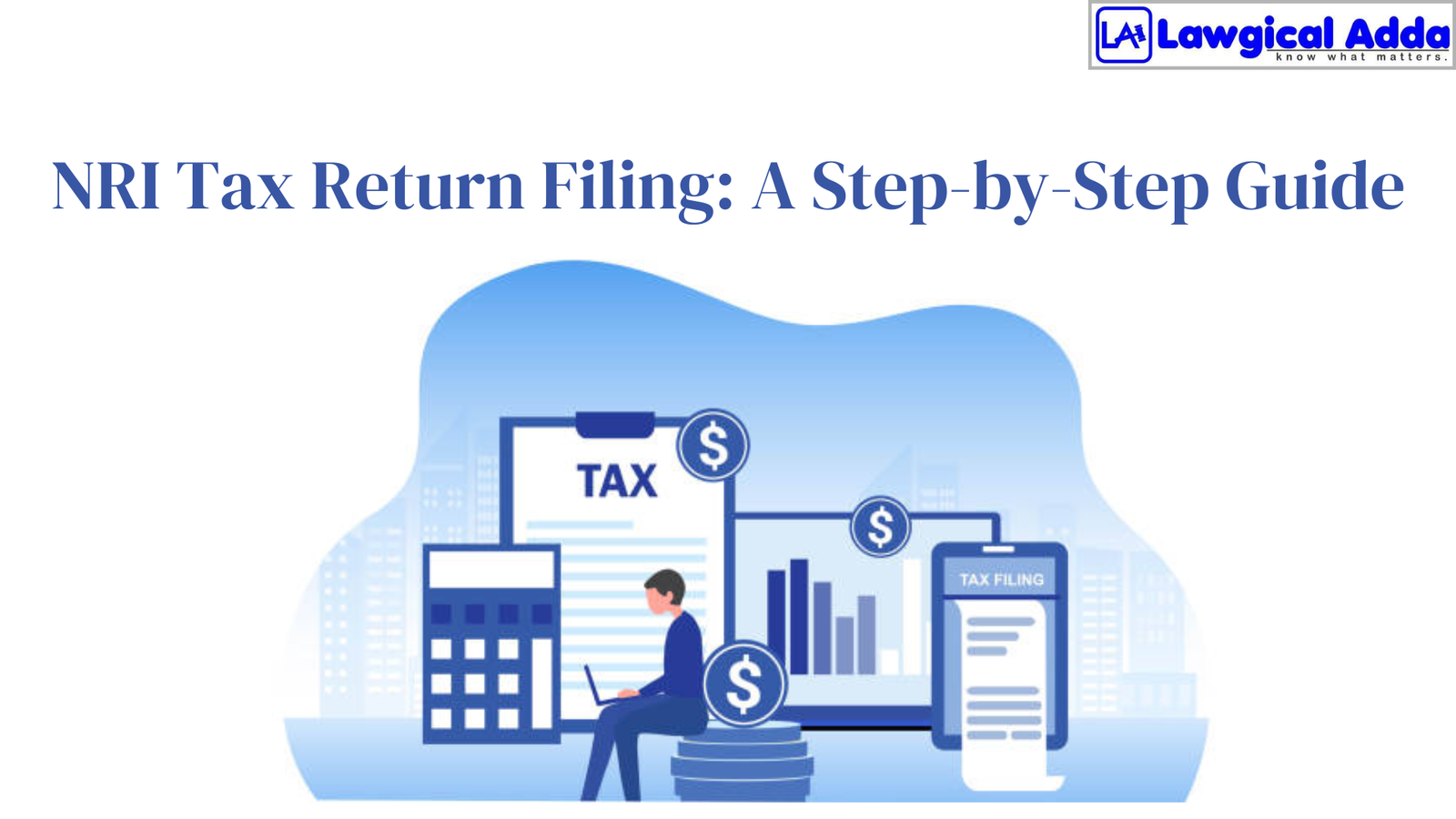NRI Tax Return Filing: A Step-by-Step Guide

Table of Contents
Introduction
Taxes are due on income arising or accruing in India for nonresident individuals. Income tax that is presumed to originate or accrue in India must also be paid by NRI. In India, money received or supposed to be received is taxable.
Procedure to File a Tax Return for NRI
Step 1: Find out whether you are a resident of India
Every financial year, NRIs must first ascertain their residential status.
According to the Income Tax Act of 1961, a non-resident Indian who travels to India or an Indian citizen who leaves the country for work may stay there for up to 181 days without losing their non-residential status.
Step 2: Use Form 26AS to reconcile your income and taxes
In the second phase, the TDS offset or input tax you paid on your income tax return (ITR) or tax return must be reconciled and compared to the TDS offset or input tax displayed on Form 26AS.
Step 3: Calculate Your Tax Liability and Assessable Income
This phase involves figuring out how much taxable income you must pay back as an NRI. This could include interest on bank accounts kept in India, rent on home property, capital gains from shares owned in India, etc.
Remember that this income can be decreased by properly claiming deductions under several parts of the Income Tax Act.
Step 4: Request Relief from Double Taxation Treaties
If your income is considered taxable in India and a foreign country, you may be eligible for a tax reduction known as the Double Taxation Avoidance Agreement (DTAA). Remember that the relief is provided based on the kind of income.
It’s important to remember that even in cases where the DTAA does not apply to your income, you will still be required to pay taxes in India and, if applicable, deduct the tax credit from your resident country’s liability.
Step 5: Choose ITR and Upload Information Regarding Exempt Income
According to income tax regulations, non-resident Indians must file returns in ITR 2 starting with the 2017–18 fiscal year, except for commercial income.
Indian non-residents who receive business income must file an ITR 3 income tax return.
Note that NRIs can no longer file ITR 1.
Additionally, ascertain and declare any exempt income, such as dividends, tax-free bond interest, LTCG received on listed securities, interest on NRE / FCNR deposits, etc.
Step 6: Providing Bank Account Information
For the tax refund to be issued, information on one overseas bank account may be needed for all non-resident Indians (NRIs) claiming an income tax refund who do not have a bank account in India.
You won’t be required to provide the details of your international bank account if you have an Indian bank account and are either not claiming a tax refund or are claiming one.
Step 7: Include Information on Assets and Liabilities in the ITR
Before the previous step, you must fulfil one last need: to provide information about your assets and liabilities.
If your total income exceeds Rs 50 lakh, you must provide details about your immovable and moveable assets in India. Along with it, you have to include information concerning your liabilities in your tax filings.
Step 8: Verification of ITR
You have 120 days from the time you upload your ITR until the time you verify it in this last stage.
The returns will only be considered valid if they are confirmed. The possibility of the income tax returns never being filed even exists.
Note: In India, e-verification can be completed with a net banking account.
Conclusion
Meeting your tax obligations on time is essential, regardless of whether you are an NRI or an Indian resident. If you do it another way, it can cost you a fortune.
As a result, be sure to settle your tax obligations as an NRI and remember to submit your tax deduction claims.
We hope the information summarized above helped you understand the tax laws applicable to NRIs.
Ready to file your Income Tax Return? Whether it’s ITR-1, ITR-2, ITR-3, ITR-4, ITR-5, ITR-6, or ITR-7, we’ve got you covered! Need to respond to a tax notice or handle TDS filings? We can help with that too.
Lawgical Adda’s solution provides end-to-end management of corporate governance and secretarial compliances, encompassing every phase of the entity life cycle. Don’t hesitate to get in touch with us if you want more information on the compliance standards and to outsource them to us.







